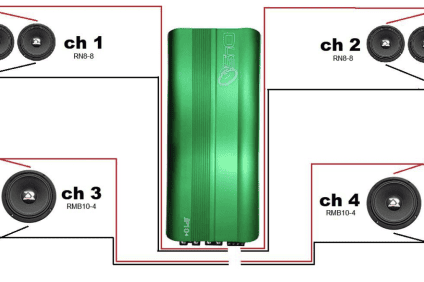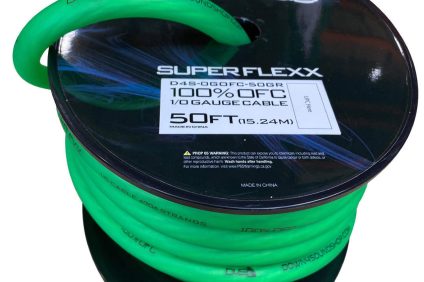Problems with a car audio system are inevitably going to pop up at some point. That’s the nature of this hobby or lifestyle. These problems boil down to a few distinct categories. One category is age. The age of your car audio equipment and the vehicle can affect the overall performance and function of your car audio system. The older these two things become, the more likely a problem will arise. The second category for car audio problems is using poor-quality equipment or mismatched equipment that will not work together cohesively. Thirdly, and problem the most common cause of problems is, a very poor, or incorrect car audio installation.
There are a couple ways to combat issues that may happen with your car audio system. Purchasing high-quality equipment, or the best equipment your budget will allow, will aid in reducing some of the problems. Another way to avoid common problems is to do your research. Research both your vehicle and the car audio components you plan on installing. Every vehicle is different and some are extremely difficult to integrate new car audio into. Knowing how your vehicle works, car audio-wise will definitely help you when the time comes to install everything. Also, knowing more about the car audio equipment you want to install will help you when deciding where and how to install it.
When problems do creep into our car audio systems, it can be frustrating trying to diagnose them and then try to remedy them. In this post, I will go over some of the most common car audio problems and give you some simple ways to diagnose and, hopefully, fix the problems to get you listening to your system again, worry-free. Let’s begin our problem-fixing journey.
Head Unit Does Not Function Properly
When a car’s head unit (radio) does not function as it should, the issue typically lies within the wiring to the head unit. Diagnosing wiring issues can be tedious, but can be done with the right knowledge and tools. Another cause of head unit misfortune, the fuse. Fuses are used to protect the car audio equipment from damage should a power supply issue arise. When they fail, your head unit will not function.
Let’s look at some typical head unit symptoms:
Head unit does not power on. — This is typically wiring or a fuse issue.
Head unit powers on and off at weird times or while driving. — If your head unit does this, it usually means that there is an issue with the power supply, or, there is an issue with the head unit’s ground. This could be as simple as a loose connection at a specific wire, or the connector could be loose as well.
If you are having similar storms in your vehicle, here are a couple things to look at to help figure out why the issues exist.
Check all of the head unit’s wiring and fuse(s). The first place to look, in my experience, is the fuse(s). Use a multimeter to check the fuses. There are typically two fuses for the head unit. One will be located within the vehicle’s fuse box, and the other will be located on the back of the head unit itself. If any of the fuses is indeed blown, replace it with the same amperage fuse as the one you removed. Having the correctly rated fuse is very important. I have discussed why fuses are an important part of a car audio setup, HERE.
Next, check all of the wiring. Specifically the power and ground wires to the head unit. Make sure they are securely connected to the head unit’s harness and the vehicle. In terms of the ground, some vehicles do not have an integrated ground wire in the factory harness. If this was the case for you, check the connection of the ground to the chassis. Also, if the wiring seems to be in good order, check the connectors. Check the connector on the back of the head unit and check the connector from the head unit’s harness to the factory harness of the vehicle.
Speakers Not Working or Do Not Sound Good
This is a pretty common issue, especially if you have replaced the factory speakers in your vehicle. Most of the speaker issues are a result of wiring issues as well, but it could mean your system has not been integrated correctly into a vehicle with a factory-installed amplifier.
If the speakers in your vehicle are just not working. There are a couple things for you to check. One, again, is the wiring. Make sure all of the wiring is properly connected and secure. Also, check to make sure that the speaker wires (inside the door) are not shorting out on the metal structure of the door. Some head units (like Kenwood) will cut the audio signal to all of the speakers if one or more of them are shorting, to avoid damage. If the wires are touching metal, you can try adding heat shrink to the portion touching the door metal, or you may have to install the speakers in a different fashion.
If your speakers do not sound that great or don’t have that punch you were after, it may be a polarity issue. To check this, make sure all of the speakers are wired correctly. This means that the positive wire goes to the (+) terminal and the negative to the (–) terminal. In order for speakers to sound their best, they must be “in phase.” This means they will move in the same direction when an audio signal is played through them. If they are “out of phase,” they will be moving in opposite directions, thus working against each other and canceling out the sound waves, resulting in poor sound quality.
If you have checked all of the previous wiring causes and have determined it may be a factory-installed amplifier, you may want to check to see if there is an integration or bypass module for your vehicle. These will allow you to either keep the factory amplifier or bypass it. Another option would be to install an aftermarket amplifier to power your speakers. You can learn how to install an aftermarket amplifier, HERE.
Unwanted Noise
Unwanted noise in a car audio system, to me, is the most frustrating issue to have. There are so many causes of this and it can sometimes be very difficult to diagnose and fix. Luckily, I have a few tips. But first, here are some of the most common unwanted noises.
Alternator whine. Alternator whine is a common noise heard through a car audio system. It is a sound (like a hum or buzz) that fluctuates as the vehicle’s RPMs change. In most, if not all cases, this noise is caused by poor grounds somewhere within the system.
Speaker noises. Speakers can make weird noises, too. These noises are usually popping, crackling, or hissing. All of these noises can be caused by a variety of things from wiring issues, to bad amplifiers or speakers.
Typically a crackling noise is caused by old age, or because the speaker needs replaced because the voice coil is damaged. Hissing can be from improper wiring, improper wire routing (RCA next to power), a bad ground at a head unit or amp, or the amplifier is not set up properly (gain). Popping noises are usually caused by what is known as “accessory pop.” Accessory pop happens when you activate some other accessory within your vehicle, such as turning on your headlights. When the headlights are turned on, there is an electrical surge that can be heard through your speakers.
If you are having any unwanted noise issues within your car audio system, here are some suggestions on how to fix them.
For alternator whine, you have to determine from which piece of car audio equipment the noise is emanating from and then check the ground connection. If possible, find a new grounding point. Remember, a clean chassis ground is the best location for any grounding point.
Speaker noises can be diagnosed by switching the speaker onto a different channel on your amplifier or on your head unit. If the noise persists, the speaker is more than likely damaged and needs to be replaced.
Combating accessory pop is a little more involved. Once you have determined which component(s) is making the noise, you will have to install a bi-polar capacitor between the component’s power supply wire and the ground. The capacitor will help to “absorb” the current surge when the other accessories are activated, thus eliminating the popping noise.
Bad Grounds, Bad Grounds
When you think of a majority of the problems with a car audio system, they all pretty much boil down to a grounding issue, or the grounds are one of the things to check. Bad grounds are a common mistake made by a lot of individuals, especially those new to the car audio scene. In addition to the problems described previously, bad grounds can also cause amplifiers to clip and cause damage.
Poor grounds can cause head units and amplifiers to work sporadically, it can starve the system of the current needed to function properly, leading to more issues in the future.
So, how do you properly ground your equipment? Well, the simple answer is, a clean chassis ground, as explained before. Make sure the surface is clean by removing paint and other contaminants to get to bare metal. Once the bare metal has been exposed, then your ground can be installed. Make sure it is securely fastened, and then you can add a clear coat, paint, or primer to the surface to aid in inhibiting rusts and oxidation.
NOTE: For grounding, DO NOT, I repeat, DO NOT use the battery’s negative terminal. The reason? Almost all of your vehicle’s accessories lead back to the battery, so you will inevitably be inviting things such as alternator whine and other unwanted issues into your car audio system.
Maintenance
Like every other part of your vehicle, your car audio system will require some sort of maintenance in order to remain problem-free. This means checking the system over and fixing anything that needs attention. Replace or repair any component that needs addressing. If you perform this occasionally, your car audio system will give you years of enjoyment.
Conclusion
Car audio can be complex and issues can surface at any time. There are more problems that may happen, but the ones I discussed here are the most frequent, That I have encountered myself and by helping others. I hope this post has given you some useful information to help attack the issues as they arise and help you diagnose and fix them with ease.
Shop DOWN4SOUNDSHOP.COM for all your favorite car audio brands. Experience the DOWN4SOUND DIFFERENCE.
- Lowest possible prices on all your favorite car audio brands
- We stock the most products in our warehouse
- The best customer service in the industry
- Free shipping
- Financing plans available
- Free goodies with every order!
DISCLAIMERS:
** Please note that this article provides general information about common problems in a car audio system. Keep in mind that not all vehicles are the same and may require different installation methods and techniques to ensure a safe and effective install. By no means, am I a professional mechanic or car audio installer, and D4S and I, are not liable for any damages caused to your person or vehicle by following these instructions. Please consult a professional if you have any questions or concerns regarding your own vehicle and how to perform modifications such as the one explained in the previous statements.





comments (0)